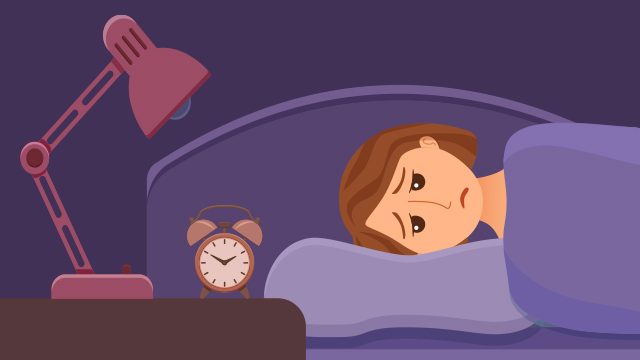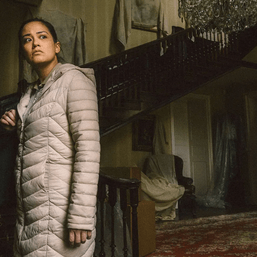SUMMARY
This is AI generated summarization, which may have errors. For context, always refer to the full article.

MANILA, Philippines — The COVID-19 pandemic has disrupted not only big industry and how we function as a society, it has also disarranged our habits at home. Among them is our sleep.
Many are awake during the wee hours for several reasons. Students are doing school work. Some are either binge-watching movies and TV series on Netflix, playing video games overnight, or scrolling mindlessly through their social media feeds.
Others though cannot sleep due to the anxiety and stress brought about by the events of this pandemic. The flip-flopping of policies and decisions on how to address the crisis has taken a collective psychological toll on Filipinos.
Dr. Anne Cristine Guevarra specializes in neurology and psychiatry at the University of Santo Tomas (UST) Hospital. She is part of the Thomasian Mental Health Responders, a counseling group from the UST Psychology Department that offers free mental health services to COVID-19 patients, frontliners, OFWs, and other people in need of mental health support during the quarantine period.
Here are her tips on how to get some sleep amid COVID-19.
1. Try to make a schedule and establish a routine
It helps that you set a time for waking up, taking breaks, and sleeping at night. This can help you fix your sleep-wake cycle. By keeping yourself active in the daytime, you avoid oversleeping and taking too many naps that may also affect your sleepiness at night. Try to do your homework and other tasks during waking hours and follow your schedule so that you can form a habit. Eventually, you’ll have a new routine!
2. Reserve your bed for sleeping
Avoid doing other things in your bed. Seeing and being in your bed should be a cue to sleep. Your brain should be trained to make this association.
By keeping your bed clean, fresh, and comfortable, you create a designated space where you can simply doze off and fall asleep.
3. Regulate light and screen time
Light cues influence our circadian rhythm. You can have sun exposure through your window, balcony, or in your garden during the day. Open the blinds in the house to increase awareness of sunrise, high noon, and sunset.
Also, avoid using your gadgets at least an hour before your set sleeping time.
4. Stay active and eat healthy
Having physical activities keeps your body healthy and releases endorphins to keep you in a good mood. It also expels the energy of the body and makes one yearn for a good night’s rest. It breaks your affinity with your gadgets as you get to enjoy other forms of entertainment.
Being mindful of the food and drink you take, especially at night, can help you sleep. It’s best to avoid caffeine-containing products at night; these are stimulants.
5. Utilize relaxation techniques
There are various relaxation techniques available, whether it be yoga, meditation, deep breathing, quiet reading (from a book and not from a gadget), and listening to calming music. Try which one is effective for you.
You can also try to stay away from pandemic-related news and social media for a while and engage in meaningful conversations with loved ones, These can help pacify your anxiety and give you feelings of security and protection.
What makes good sleep?
Dr. Guevarra enumerates the key indicators to good quality of sleep, based on the National Sleep Foundation’s guidelines.
They are:
- Being able to fall asleep in 30 minutes or less;
- Sleeping at least 85% of the total time while in bed;
- Waking up only once per night; and
- Being able to get back to sleep after being awake for 20 minutes or less.
The youth’s screen exposure at night
Dr. Guevarra also points out the stark difference between youth’s sleeping patterns versus that of the older generations in the context of the pandemic.
“The main difference that is always on top of the list is exposure to technology. Nowadays, it seems to remain the focal point of lockdown sleeping issues. The exposure to it is much greater because activities are limited, it is the only way to connect with peers and other significant people in one’s life, it is the only channel to get in touch with the outside world,” she adds.
Dr. Guevarra also said that, biologically, our environment prompts our body on what it needs to do – such as when our brain secretes melatonin, which controls the sleep-wake cycle.
“The more electronic devices one uses, especially at night, the harder it would be to fall asleep. It is said to be due to the increased alertness at a time that the brain should be resting, delays the onset and decreases the duration of deep sleep, and reduces the energy of the brain for the next day, and this gets accumulated,” she explained. – Rappler.com
Add a comment
How does this make you feel?

















There are no comments yet. Add your comment to start the conversation.